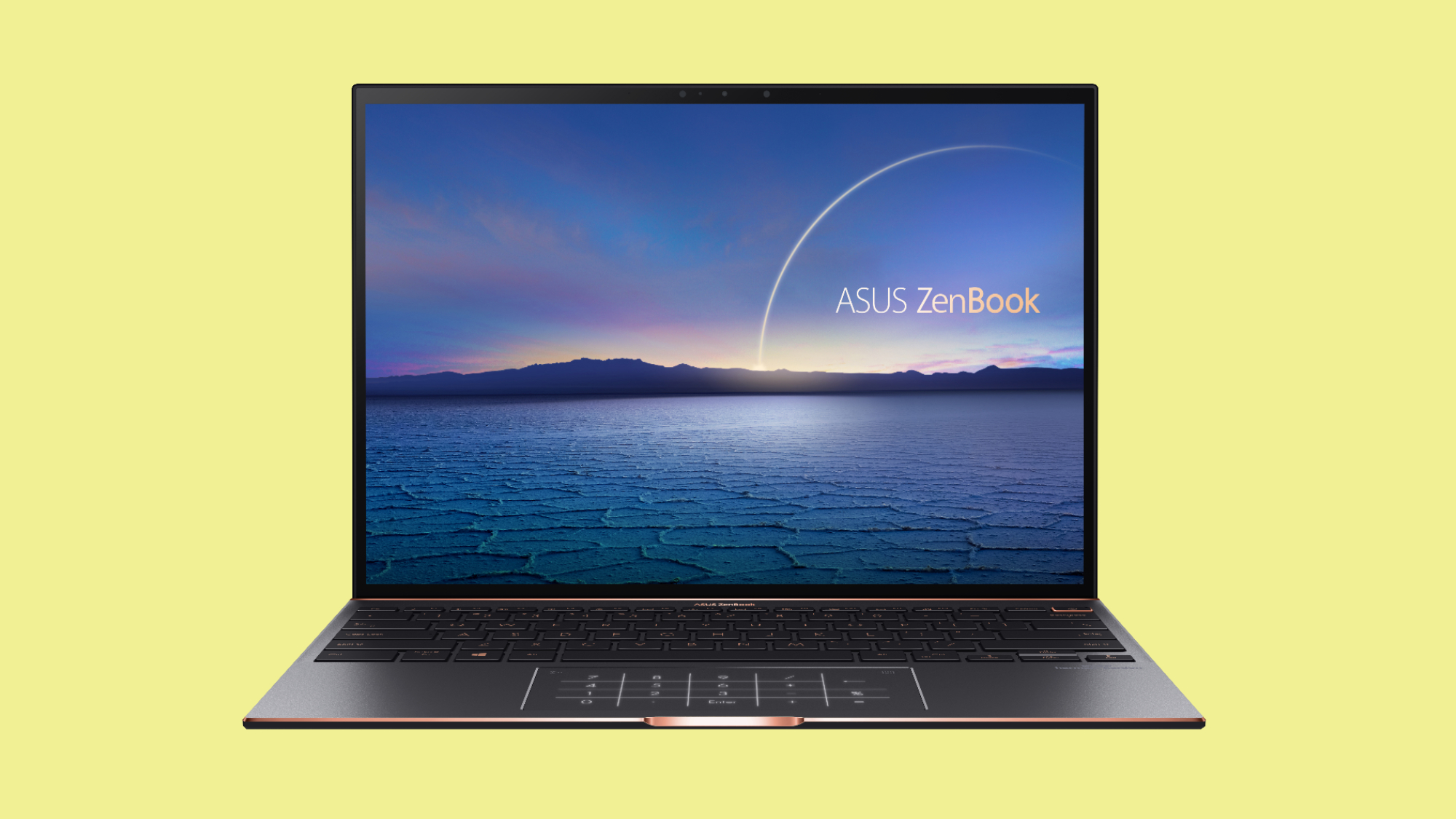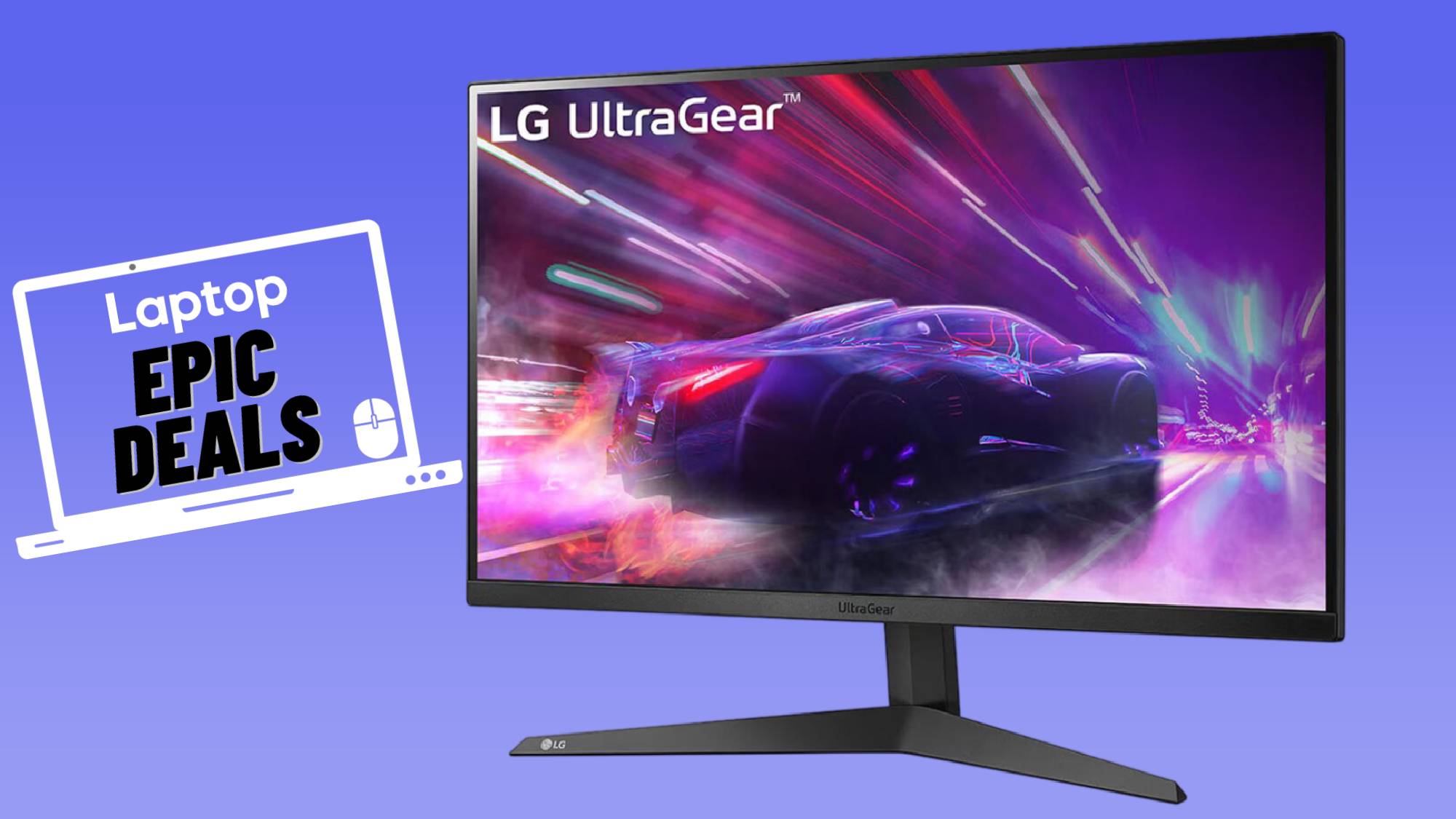Asus' ZenBook S is packed with modern features — but there's one big omission
The ZenBook S might be too trendy for its own good

Asus' new ZenBook S is an ultraportable laptop with a lux black-and-copper design and a unique 3:2 aspect ratio for the 13.9-inch touchscreen.
We haven't seen the ZenBook S in person yet but images show a stunning laptop with a Jade Black metal finish and "Red Copper" diamond-cut highlights with those signature Asus concentric circles on the lid. It looks like the Dark Mode version of the HP Spectre x360 and I say that with the greatest of compliments.
- Best Ultrabooks in 2020
- The best Asus laptops in 2020
- Best laptops 2020
Measuring 0.6 inches and weighing 3 pounds, the ZenBook S is among the lightest 14-inch laptops on the market. Its all-metal unibody design uses magnesium alloy to keep the weight down while remaining durable.
Despite its size, you get a generous selection of ports, including an HDMI input, a USB 3.2 Type-A port, a microSD card slot and two Thunderbolt 3 ports. But there is one major omission. The sacrificial lamb of so many new gadgets, the headphone jack is absent on the ZenBook S. For wired headphones, Asus includes a USB-C-to-3.5mm dongle in the box.
What makes the ZenBook S so compelling is that it fits the latest features and trends into a stylish, portable chassis. To that end, the notebook has a 92% screen-to-body ratio thanks to its razor-slim display bezels. And instead of using the traditional 16:9 aspect ratio, Asus opted for a 3:2 ratio on the 13.9-inch display. Trading display width for height is in-fashion because it lets you view more text when browsing web pages or writing documents.
The ZenBook also has an IR camera for Windows Hello login and an ErgoLift hinge, which means the back of the deck is slightly lifted for a more comfortable typing experience, increased airflow and improved speaker quality. Speaking of typing, the ZenBook S has an edge-to-edge keyboard so the keycaps are large enough for those with pudgy fingers. The touchpad is another highlight of this laptop because it has an integrated LED-illuminated numeric keypad.
Getting back to that display, the ZenBook S's 13.9-inch screen has a dense 3300 x 2200 resolution, putting it somewhere between 1080p and 4K. The panel can get up to 500 nits, which is well above our 300-nit threshold. Asus says it covers 133% of the sRGB color gamut and 100% of the DCI-P3 color space. We'll do our own testing once we get the device, but for now, those are both excellent results. The screen is also Pantone validated to have accurate colors out of the box.
Stay in the know with Laptop Mag
Get our in-depth reviews, helpful tips, great deals, and the biggest news stories delivered to your inbox.
Powering the ZenBook S is up to a 10th Gen Intel Core i7-1065G7 CPU with Iris Plus graphics, not the 11th Gen Comet Lake chips expected to arrive with Xe graphics in the coming weeks. Also under the hood is up to 16GB of RAM and up to a 1TB PCIe 3.0 m.2 SSD.
Battery life is rated at 14 hours but we'll take anything over 10 hours when we put this ultraslim laptop through our own battery test. With fast-charge, you can juice the ZenBook S up to a 60% charge in as little as 49 minutes, Asus claims. A feature I'm excited to test out is the ability to use a range of USB-C adapters, including most power banks, to charge the ZenBook when the 65W adapter isn't nearby.
Outlook
With the ZenBook S, Asus took some of the best laptop trends and put them into a sleek package. The slim notebook has a stylish, ultra-lightweight design, a high-res 13.9-inch display with a 3:2 aspect ratio, an IR camera, and a touchpad with an integrated illuminated numpad.
It's just a shame that Asus fit an HDMI and USB Type-A port on the ZenBook S but not a headphone jack. Regardless, if the battery life is anywhere close to the 14-hour estimate, then the ZenBook S could give the XPS 13 and HP Spectre x360s of the laptop industry a serious run for their money.
Phillip Tracy is the assistant managing editor at Laptop Mag where he reviews laptops, phones and other gadgets while covering the latest industry news. After graduating with a journalism degree from the University of Texas at Austin, Phillip became a tech reporter at the Daily Dot. There, he wrote reviews for a range of gadgets and covered everything from social media trends to cybersecurity. Prior to that, he wrote for RCR Wireless News covering 5G and IoT. When he's not tinkering with devices, you can find Phillip playing video games, reading, traveling or watching soccer.

